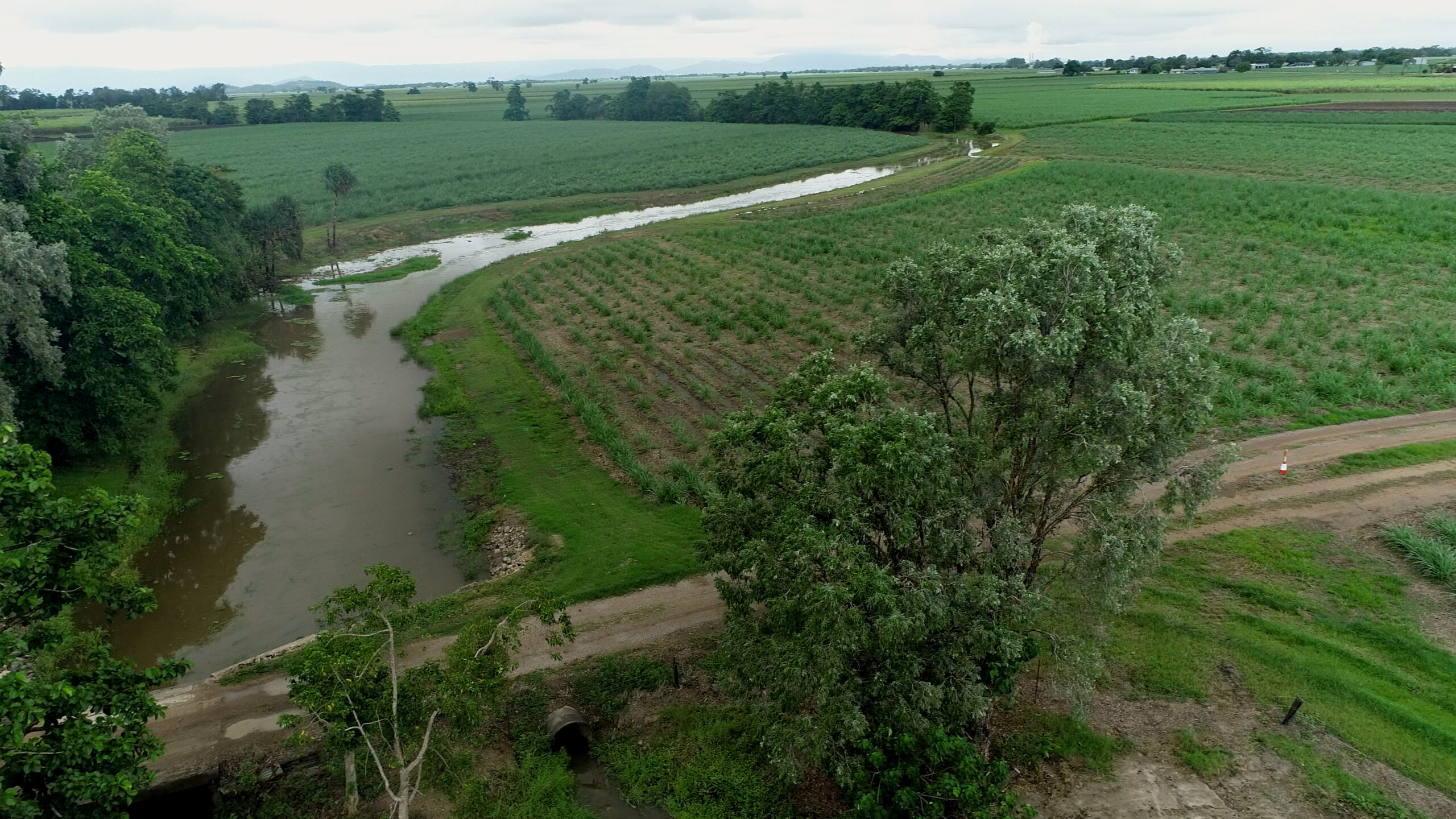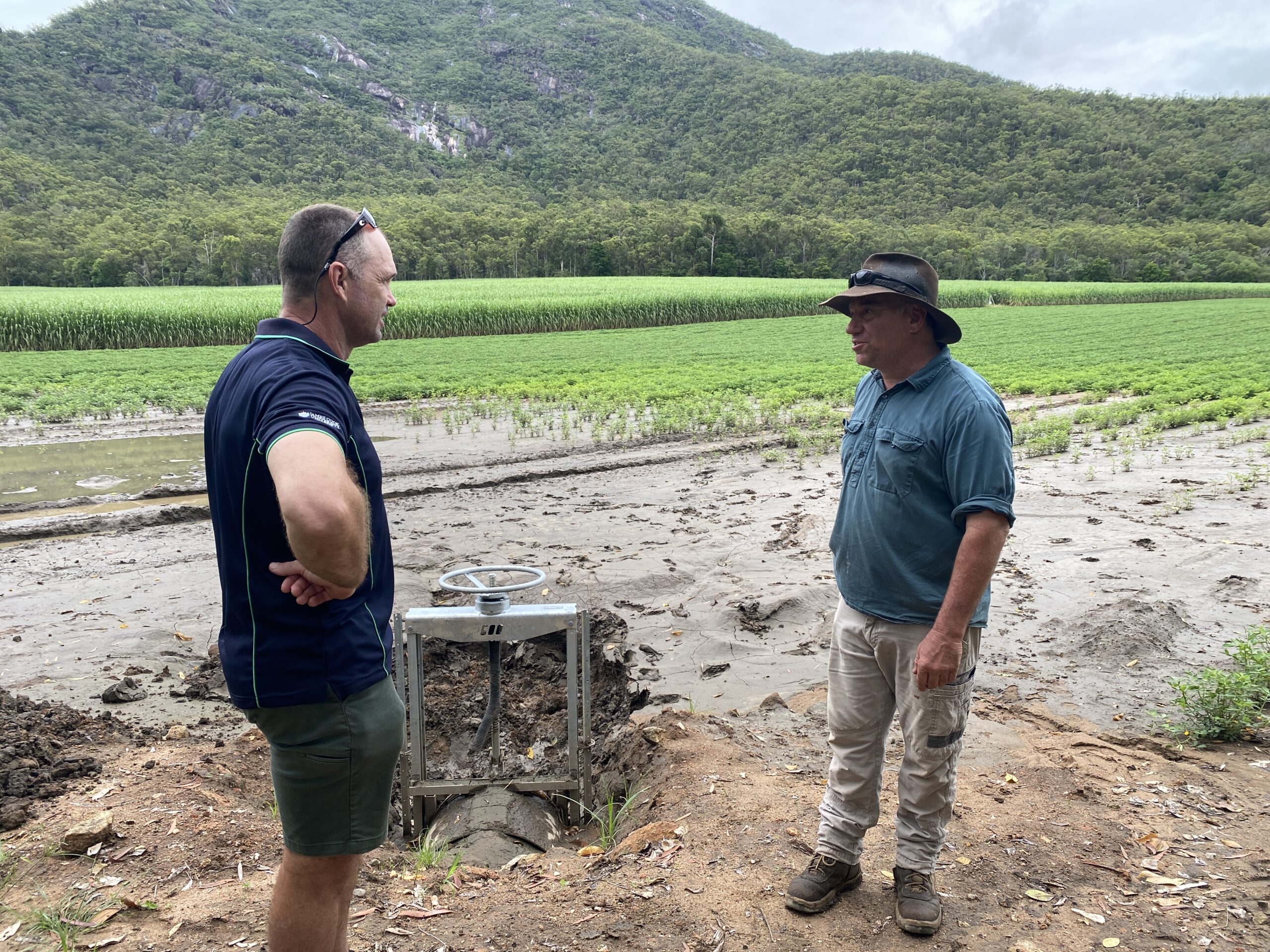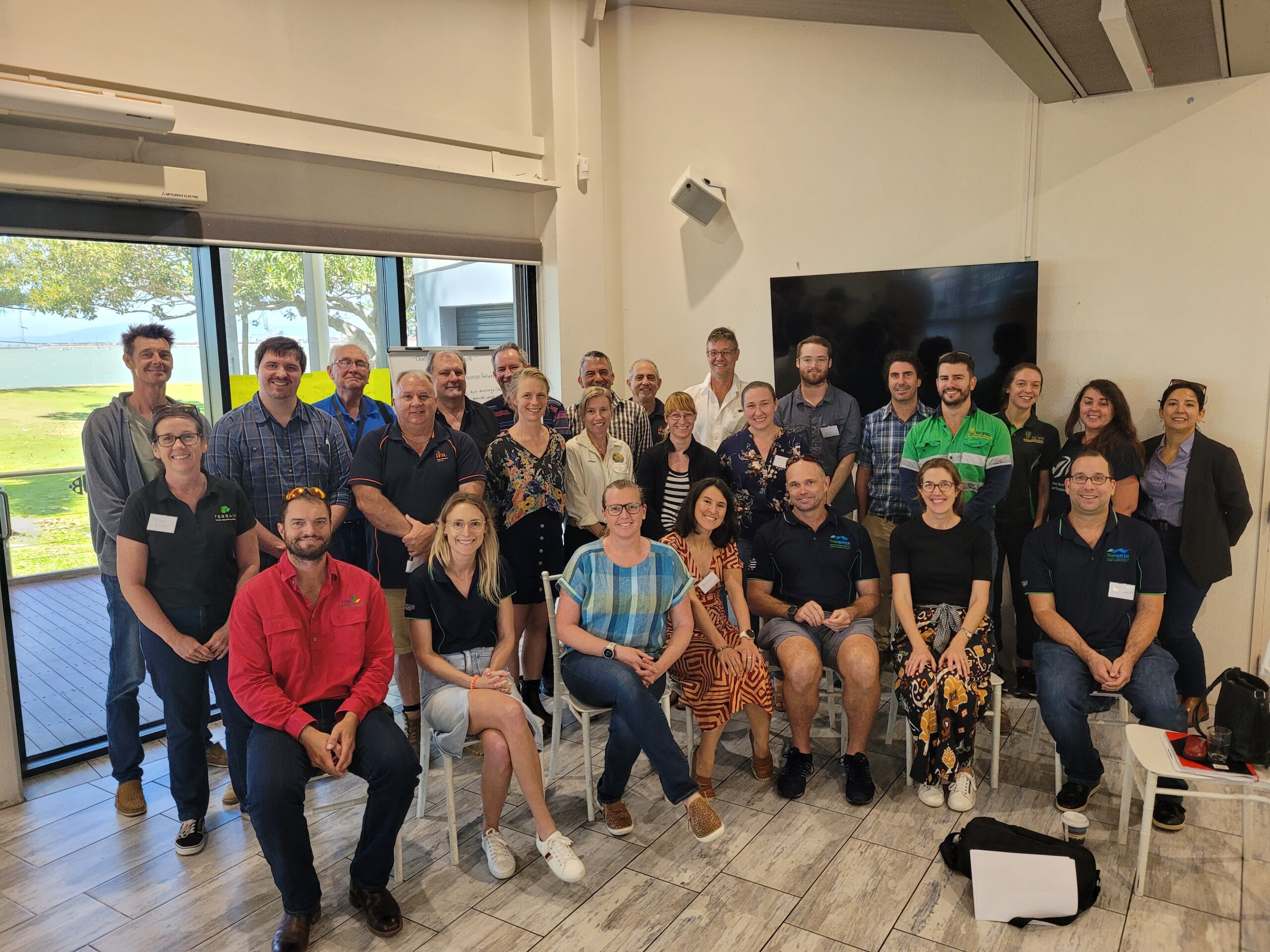As environmental challenges escalate, the need for cane farmers to help improve water quality continues to grow to build the resilience of ecosystems, like the Great Barrier Reef.
But how do you bring science to farmers in a way that matters, in a way that empowers collective action to meet the needs of the environment while also meeting the needs of farming?
Across the Great Barrier Reef catchment, scientists and cane farm extension officers are enhancing paddock-scale water quality monitoring projects to strengthen the crucial link between water quality science and sustainable agriculture.
The James Cook University TropWATER project unites ten water quality monitoring projects – spanning the Wet Tropics, the Burdekin, and Mackay Whitsunday regions – to collectively improve the data collection and communication of water quality science in farming communities.
This initiative harnesses the strong rapport between on-ground extension officers and farmers. It focuses on the potential impact that paddock-scale and sub-catchment scale water quality data has in directly empowering farmers in the transition to improved agricultural practices.
The TropWATER project, as well as the ten water quality monitoring projects, are funded by the partnership between the Australian Government’s Reef Trust and the Great Barrier Reef Foundation, under the Regional Water Quality Program (Regional Programs – Great Barrier Reef Foundation).
In this article, we explore the intricacies of balancing agriculture and good water quality, and the role this TropWATER project has in bolstering efforts of those on the ground working with farmers.
Why do sugarcane farms matter in the Great Barrier Reef catchment?
Australia’s agriculture industry, including sugarcane, plays a significant role in our economy and global food security. It supports the livelihoods of thousands of Australians and is at the heart of many small north Queensland communities.
About 90% of Australia’s sugarcane is produced in Queensland. Many of these cane farms stretch along the narrow coastal plains adjacent to the Great Barrier Reef, knitted among freshwater and inshore marine ecosystems. Given this close connection, managing the farming business and the protection of the environment is an essential balance in agriculture practices.
Cane extension organisations have supported farmers in adopting improved land management practices that has co-benefits for both farm production, profitability and preserving local ecosystems.
The connection between farmers and extension officers is proving vital in communicating robust water quality science directly to farmers – helping more farmers transition to environmentally sustainable and more efficient farming systems.
How does agricultural runoff impact freshwater and marine ecosystems, including the Great Barrier Reef?
Water quality issues impacting marine and freshwater ecosystems arise from a combination of factors, including urban development, climate change, and agriculture. Within this, intensive farming is recognised as a major contributor.
In the sugarcane industry, applying fertiliser (nitrogen, phosphorus, potassium and other micro-nutrients) is needed to enhance soil fertility, meet crop nutrient demands and promote healthy cane growth. Pesticides are also used to control and kill targeted pests, like the cane grub and grasses, vines and broadleaf weeds.
TropWATER Senior Researcher Dr Stephen Lewis said while these products were essential in modern farming systems, decades of research highlight the connection between farm runoff and its impact on water quality in both freshwater and inshore marine ecosystems.
“Heavy rainfall and intense irrigation can transport nitrogen and phosphorus fertilisers and pesticides off the paddock quickly and into drainage systems and waterways,” he said.
While inshore areas are commonly more turbid and nutrient-rich environments compared to offshore marine ecosystems, excess sediment and nutrients from runoff can reduce water clarity and exacerbate inshore nutrient levels. This causes phytoplankton blooms, persistent macroalgae outbreaks on inshore coral reefs and a loss of seagrass area and abundance.
“These elevated sediment and nutrient levels can drive water quality down, impacting the resilience of coral and seagrass communities to recover from major disturbances, like cyclones, floods and coral bleaching,” he said.
“The highest direct risk of poor water quality is to local waterways, freshwater wetlands, and inshore seagrass meadows and coral reefs close to the coastline.”
Every farm has its challenges in mitigating this runoff. Understanding those challenges is critical in making impactful changes to the farming system.
How can paddock-scale water quality monitoring drive improved farming practices?
Agricultural systems are complex. Each farm has a unique set of challenges that must be carefully managed under the variability of different target pests, soil type and rainfall.
Given each farm is unique, monitoring water quality allows farmers to compare different farming practices to better understand the amount of products lost from their farm and what strategies are most effective in mitigating this loss.
Dr Aaron Davis, TropWATER senior scientist and project lead on multiple water quality monitoring projects, said there were many farmers making great strides in improving their land management practices across the Great Barrier Reef catchment.
“Farmers care greatly about their local environments, but some farmers can be unsure about the role agriculture plays in declining water quality and how fertilisers or pesticides on their paddock can run into waterways,” he said.
“They also can be unsure if and what management practices can actually make a difference in improving water quality without decreasing the production of their farming business.”
Dr Davis says robust paddock-scale water quality data helps farmers confidently understand their irrigation, fertiliser, pesticide and sediment surface losses.
“Showing farmers paddock-scale data is empowering them to make decisions based on what is relevant to their farm – and farmers can see these direct results as they adjust their practices.”
Connecting monitoring efforts across the Great Barrier Reef
The GBRF and JCU TropWATER initiative connects multiple on-ground projects from different Great Barrier Reef catchments, aiming to help build farmers’ trust in water quality science to ultimately facilitate change in achieving a balanced farming system.
These on-ground projects focus on different strategies to improve farming practices and reduce runoff, including optimising irrigation efficiency, enhancing nutrient removal through water retention, refining fertiliser and mill mud application rates and strategies, and promoting responsible pesticide management.
TropWATER researcher Dr Zoe Bainbridge said the collaboration takes a distinctive approach that integrates scientific expertise from leading water quality researchers with strategies from science communication specialists.
“Our team has two decades of water quality science experience that span from the paddock to marine environments. We understand the water quality issues associated with multiple land uses, including the paddock-scale, and have applied water quality monitoring to show the benefits of various management practices,” she said.
“We’ve matched our scientific expertise with strategic communications, with a big focus on tackling communication barriers in water quality science. Our goal is to arm extension officers with tools and strategies to help overcome those challenges, including developing consistent messaging to address mixed messages and misinformation.”
In the last year, the project has hosted various workshops and training programs, provided critical resources to extension officers, developed legacy documents in technical guidance, and provided strategic communications support.
“TropWATER’s support has been a resounding success, with real legacy impact and a sustainable future for both farmers and the environment,” said Carolyn Trewin of the Great Barrier Reef Foundation.
“Projects have provided overwhelmingly positive feedback to the Foundation about their involvement, and we are confident that water quality monitoring activities are more robust, with effective engagement and communication strategies because of this initiative.”
It’s hoped the project can expand to continue to break down communication barriers in water quality science, ensure robust data are collected to drive a sustainable future for both farmers and the environment, and expand the collective efforts of extension staff and farmers in improving water quality across the Great Barrier Reef catchment.
This project is delivered in collaboration with specialists from the CSIRO, UQ’s Reef Catchments Science Partnership and AgriTech Solutions. Water quality projects are led by Farmacist, Sugar Research Australia, Burdekin Bowen Integrated Floodplain Management Advisory Committee (BBIFMAC), Catchment Solutions, LiquaForce, Herbert Cane Productivity Services, TropWATER and Terrain NRM.




